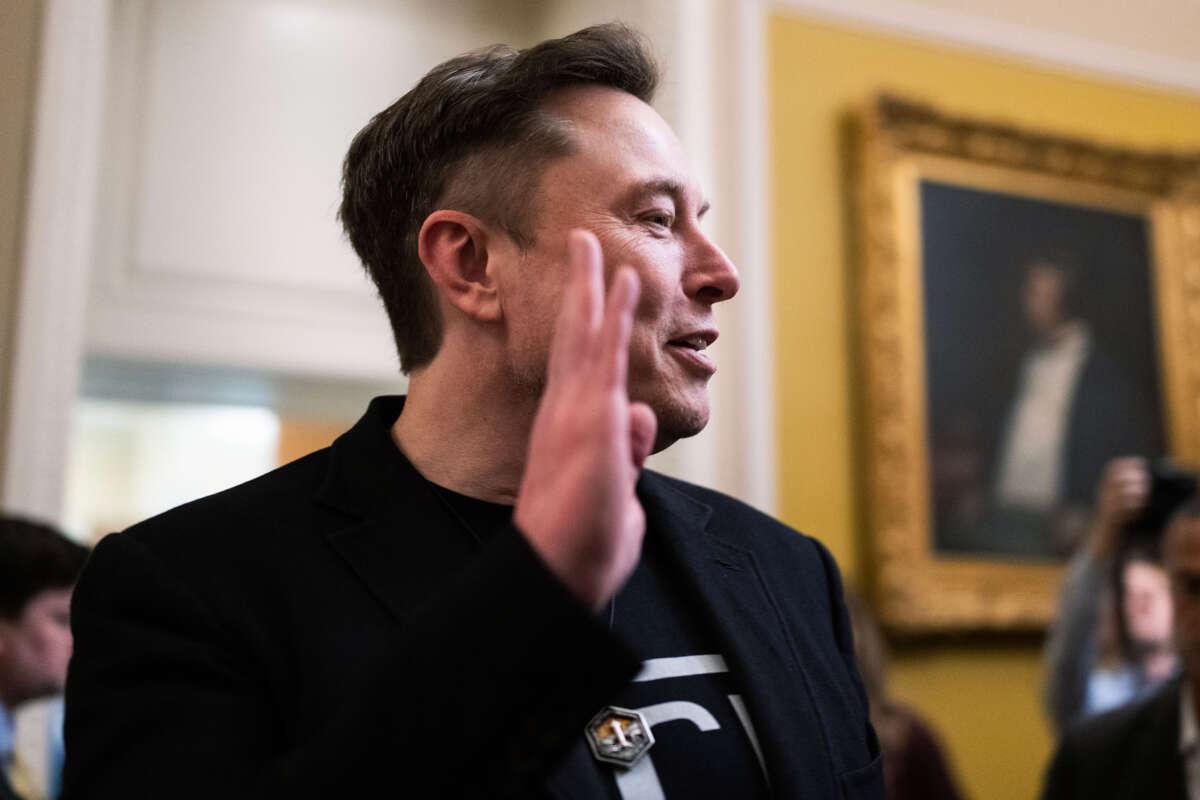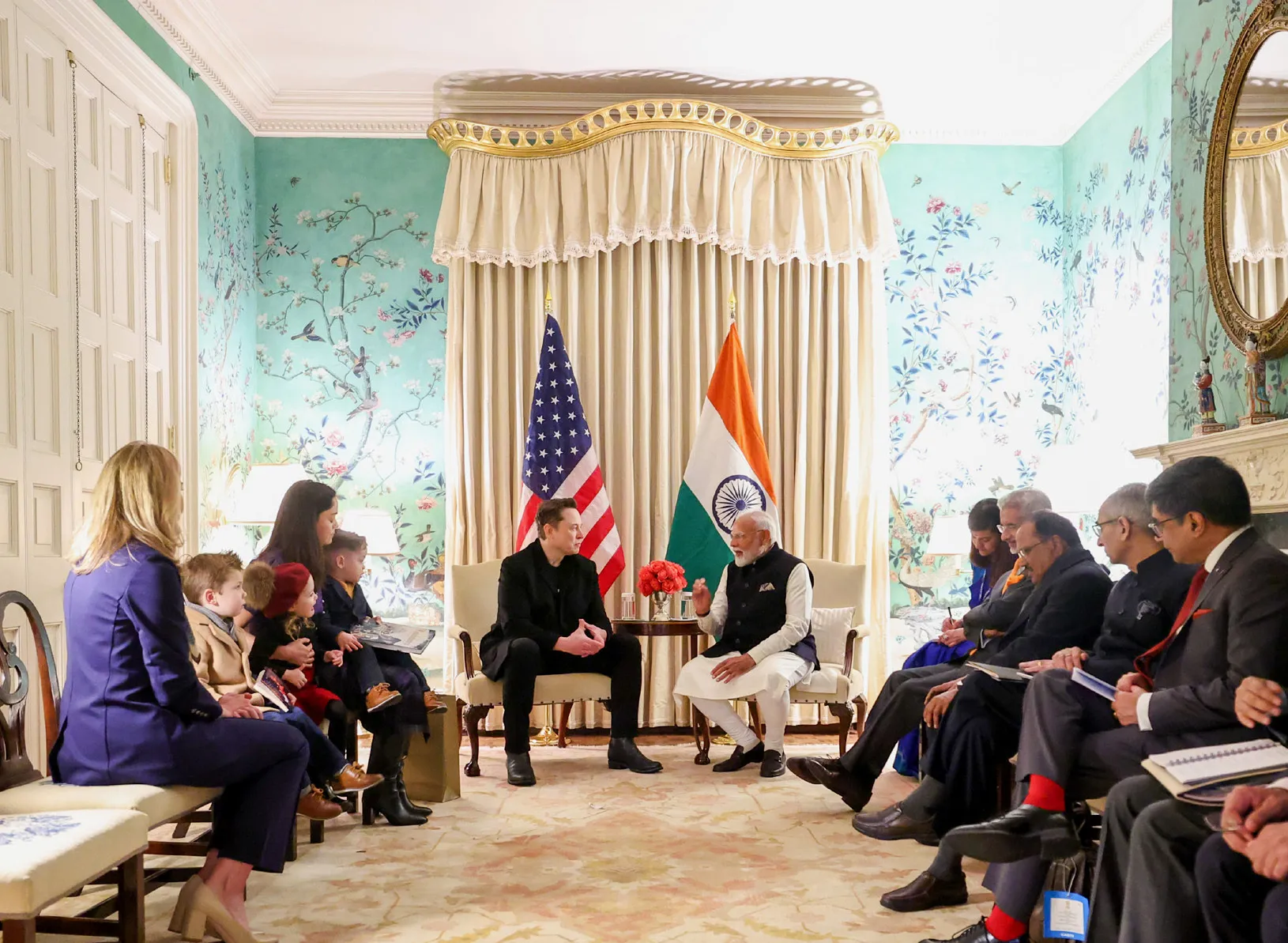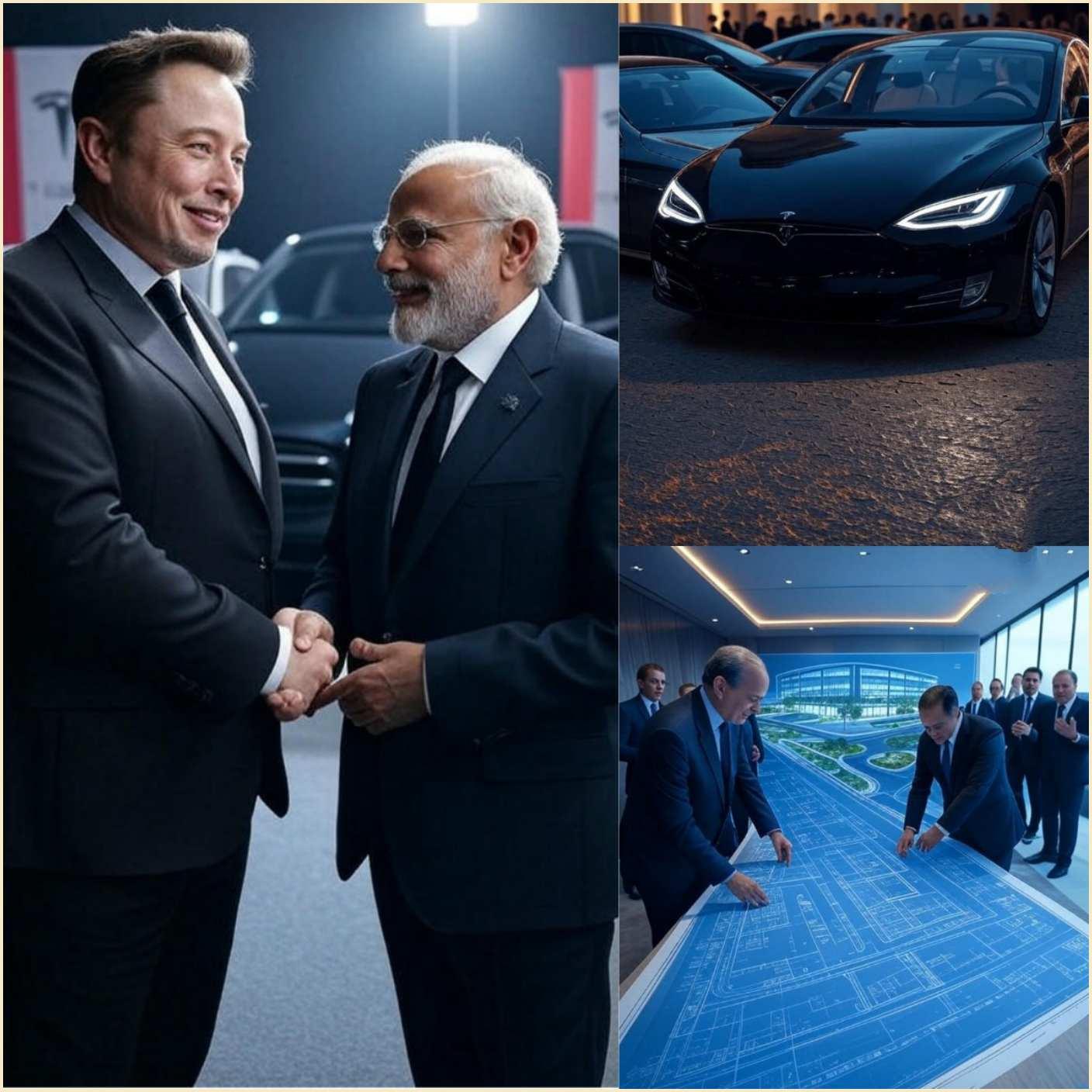The ambitions of India to become a global hub for the production of electric vehicles (EV) have taken a dramatic and highly strategic turning point.

This change takes place while Tesla has publicly refused to participate in the production program of Punta della India electric vehicles, reflecting the country’s priority to focus on a technological brand rather than on a wide -ranging industrial development.

The move indicates that the Indian government, under the leadership of Prime Minister Narendra Modi, is willing to wait for a symbolically powerful partner rather than to settle for less attractive historical actors from a media point of view.

The Indian minister for heavy industries, HD Kumaraswamy, confirmed this week that Tesla has no plan to produce electric vehicles in the country at the moment, despite the launch of an overall policy designed to encourage global players to build Indian soil vehicles.
Tesla, according to the minister, will establish two retail showrooms, marking a limited but great visibility presence.
These observations represent the first official recognition that, despite over a year of negotiations, the Indian government has not managed to involve Musk completely in its EV revolution.
This revelation arrives in a moment of strategic tension in the industrial policy of India. Mercedes-Benz, Skoda-Volkswagen, Hyundai and Kia have all expressed interest in producing electric vehicles in India, encouraged by a new government scheme that offers significant tax incentives.
However, the government’s response to these car giants – which bring decades of experience, robust logistics and consolidated consumers bases – raises critical questions. Why does India seem to marginalize traditional producers in favor of a company that has repeatedly hesitated to engage in the Indian market?
The answer could live largely in the symbolism. Elon Musk, for both positive and negative reasons, has become synonymous with innovation, dusters and futuristic ambition. A Tesla factory in India would represent more than one production site: it would be a statement. It would mark the world that India is no longer only a assembly line for conventional cars, but a pioneer in high-tech transport and new generation.
This vision is strictly aligned with the wider “make in India” campaign by Prime Minister Modi and its ambition to establish India as a global technological leader. When Musk met ways in Washington, DC, at the beginning of this year, both leaders spoke of the “immense potential” for collaborations in innovation. The Tesla brand, with its spirit of Silicon Valley and the ambitions that change the world, fits perfectly into this narrative.
However, the economic realities on the field tell a different story. The EV market in India is still at the beginning, with electric vehicles representing less than 3% of the total sales of passenger vehicles. Prices sensitivity remains high among Indian consumers, and electric vehicles produced locally, such as those of the Tata Motors and MG Motors, dominate the market by offering much cheaper alternatives.
The Tesla Model 3, even in its most basic configuration, could cost Indian consumers two or three times more than a nanny Tiago EV. In addition, the charging infrastructures in India are still scarce and unreliable, and many local roads are difficult for driving precision in which Tesla’s software excels. In short, the country could dream of the Tesla, while its reality remains a lot of a tata world.
In addition, the political background is adding complexity. Tesla’s reluctance to build a factory in India may have been influenced by the recent statements by the President of the United States Donald Trump, according to which it would be “unfair” for Tesla to move production abroad, especially towards a market like India. The role of Musk in the Trump administration – until his resignation last week – put him in the highly politicized spotlight.
The negative reaction to Musk’s political associations has already damaged Tesla’s global sales, with the numbers of the first 2025 quarter showing the worst performance of the company in three years. Musk’s exit from his government role could give him greater flexibility, but the damage made to the image of Tesla, in particular among liberal consumers and centrists around the world, could take years to be repaired.
In the meantime, India is continuing with its production plans for electric vehicles. The new scheme presented by the government offers attractive conditions: the global manufacturers who invest at least 500 million dollars and undertake to produce locally within three years will benefit from reduced customs rates.
This move is clearly designed to try companies like Tesla, who have long complained about the prohibitive tax regime of India. Musk had previously mentioned the high import rates of India as a great deterrent to enter the market, calling them “the highest in the world far” in a tweet from 2022. Yet, even with these incentives, Tesla seems to continue to prevail, perhaps waiting for a greater maturity of the market or more favorable political conditions.
While India seems to wait patiently Musk, it is worth noting that others are not remaining still. China’s byd, already the main seller of electric vehicles in the world by volume, is quickly expanding its global presence and could overcome Tesla in key emerging markets such as Southeast Asia and Latin America.
In India, Byd has already introduced MPV electric vehicles and is actively committed to building its dealers’ network. In the meantime, local champions like Tata Motors have already conquered over 60% of the internal market of electric vehicles, and MG Motors – now partially owned by the Indian Giant JSW giant – is expanding aggressively with products adapted to Indian conditions.
These companies may not have the recognition of the Tesla brand, but have advantages in terms of price, adaptability and advantage of being the first to enter the market.
This raises a critical question for Indian politicians: is it wise to bet the future of the country on EVs on the hope that Elon Musk one day builds a gigafactory in Gujarat or Maharashtra? Or should India make a more pragmatic move and support automotive producers who are already engaged, already investing and already selling vehicles that Indian consumers can afford and use today?
The apparent marginalization of Mercedes-Benz, Skoda-Volkswagen, Hyundai and Kia suggests that India could be more concentrated on prestige than on practicality. All four automotive producers have indicated their willingness to participate in the EV travel of India and each brings distinct advantages.
For example Hyundai has already launched the Ioniq 5 in India and has a solid local production base. Volkswagen and Skoda have deep ties with the Indian market through their India 2.0 strategy. Mercedes-Benz has a premium customer base consolidated in India and has even launched a Made-In-India luxury EV, the EQS, from its Punk factory.
Still, these companies find themselves obscured by Tesla’s charm – a company that, at least for now, refuses to commit.
To be righteous, the push of India for Tesla is not without merit. The country’s leaders include the soft power that Musk exercises. A Tesla factory in India could catalyze additional investments by other high-tech companies, serve as validation of India’s reforms and attract the attention of the global media that no Hyundai plant could ever obtain.
But there is a risk in learning too long. If Tesla continues to prevaricate while others advance, India may find herself bypass in the global race to EV – not because she lacked partners, but because she has focused all her hopes on a single star.
In the end, the ambitions of India for EV are at a crossroads. It can continue to spread the red carpet for Musk in the hope that the prestige will bring progress. Or it can seriously engage in supporting producers who are already willing to build, take and innovate on Indian soil. Time holds, the roads are ready, and the future is electric – but if Tesla will be part of that future, it is still all to see.





